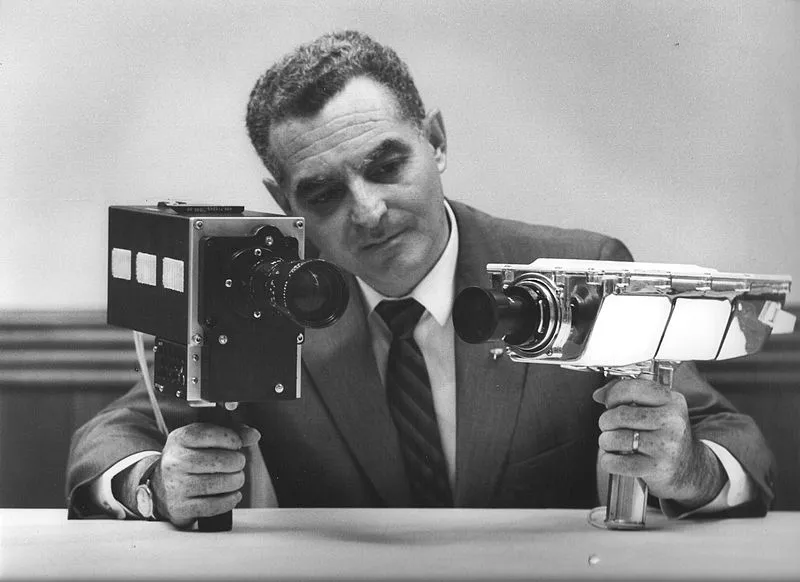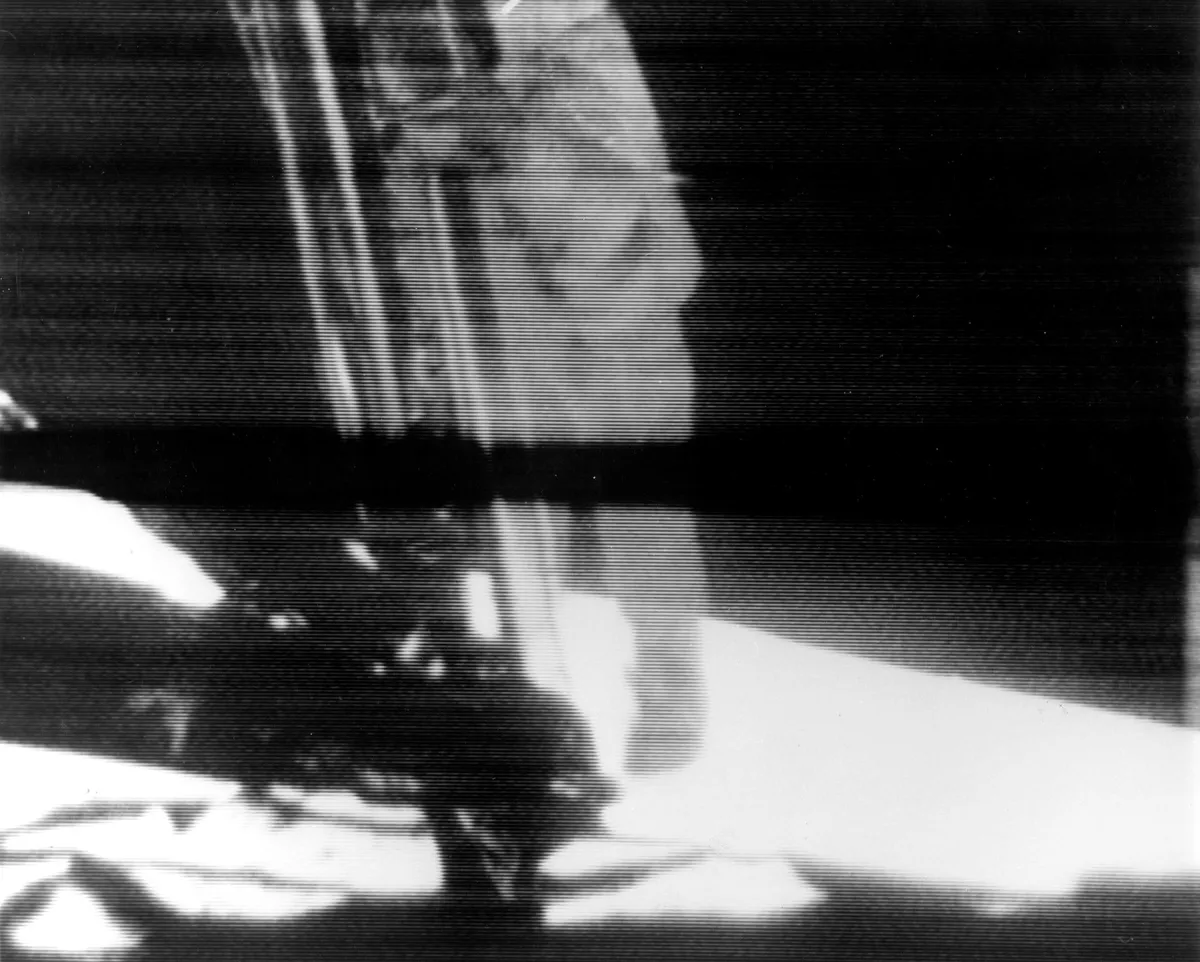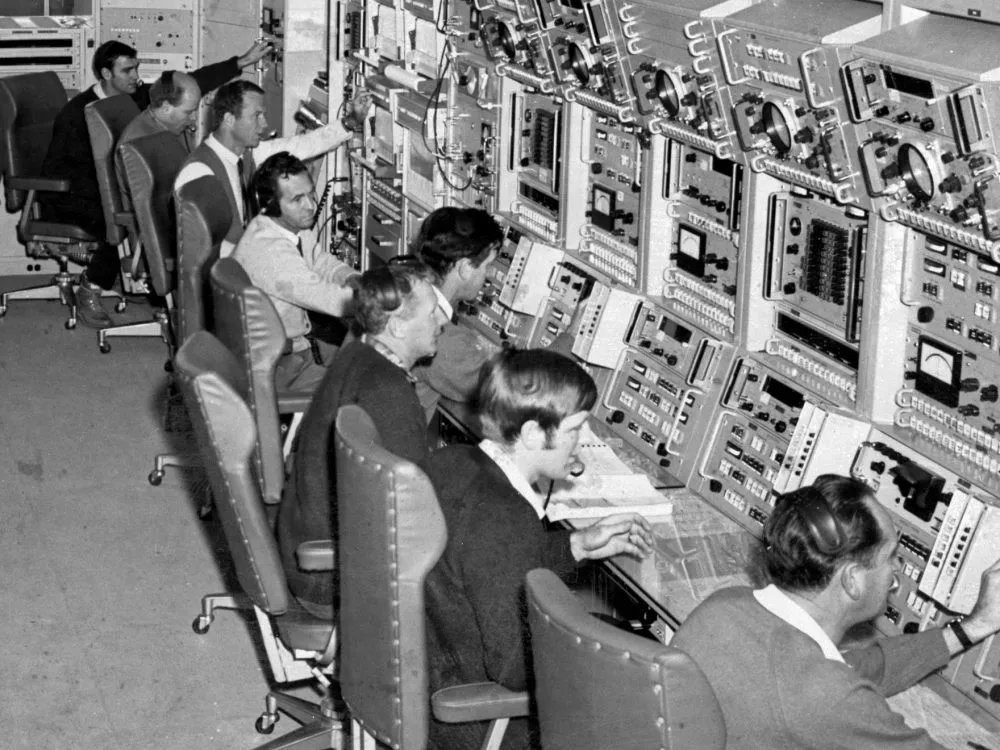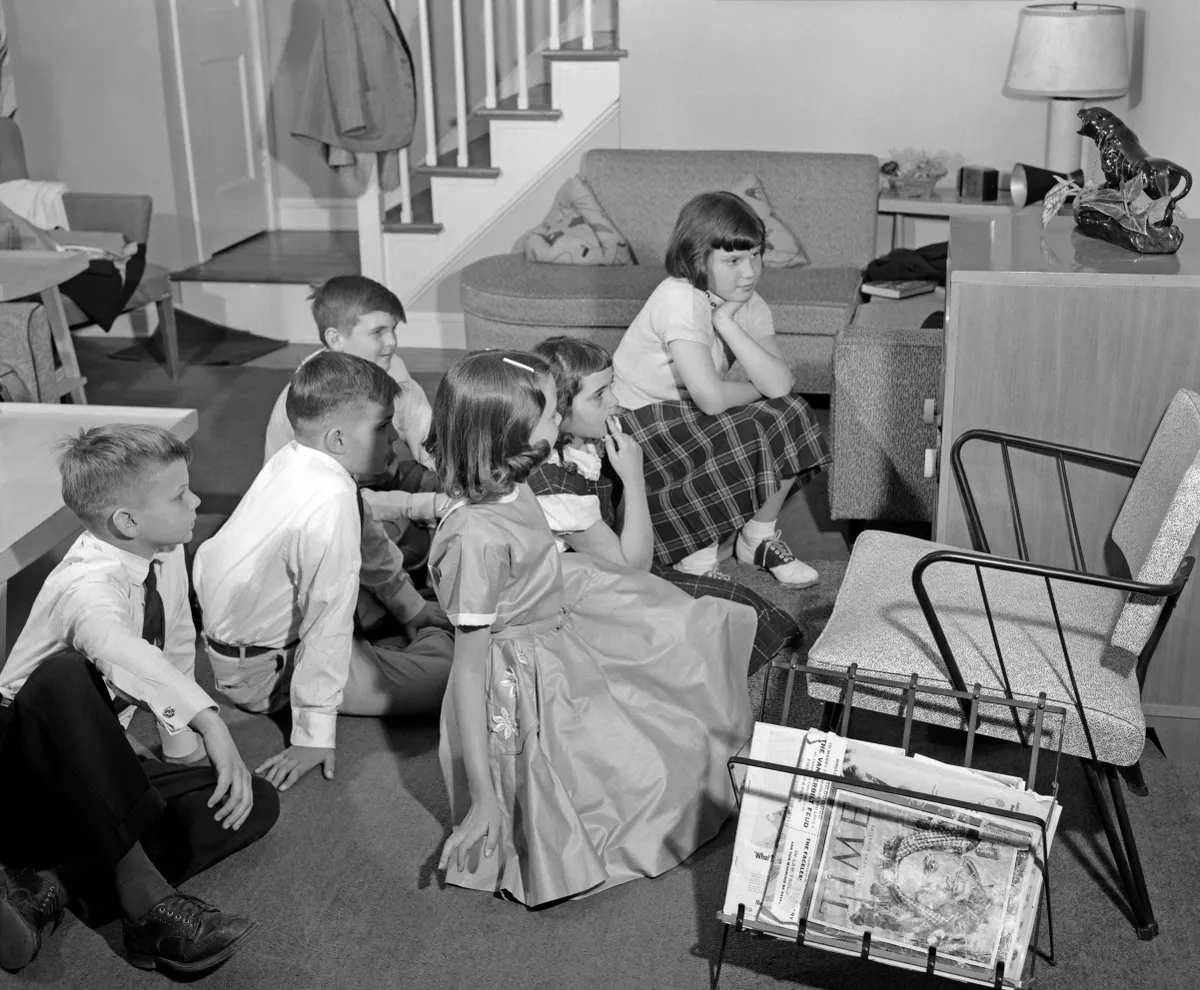It is almost 50 years to the day that humans set foot on the Moon. The event was transmitted to TV screens around the world, making Apollo 11 by far one of the biggest television events of the 20th century.
Television coverage of Apollo 11 was so important that NASA had to include an antenna on the Lunar Module so that Neil Armstrong and Buzz Aldrin didn’t have to wait for the tracking station to be in range before taking their first steps.

The planned live coverage of the Moon landing was almost a decade in the making and required a significant advancement in communication engineering to enable successful transmission through space.
Data size and transmission of various information channels were some of the biggest problems faced by NASA engineers. One of the solutions was the Unified S-Band (USB). This combined tracking, ranging, command, voice and television data all to a single antenna.
The grainy, line-riddled images broadcasted to the world were another by-product of the data saving strategy.
There wasn’t enough room on the Lunar Module communication system to support the bandwidth from the standard video camera of that time.
NASA’s solution was to reduce the bandwidth from the standard 525 scan lines of data at 30 frames per second at 5Mhz to a slow-scan camera which provided 320 scan lines at 10 frames per second at 500kHz.
However, the relatively poor video quality didn’t deter people from around the world tuning in.

In the UK, the BBC alone covered 27 hours of footage over a ten-day period, with programmes titled Apollo 11. BBC1 segments were broadcast in black and white and BBC2 in colour.
On the night of the Moon landing, many records were set, including the first ever all-night broadcast on British television, as BBC1 and ITV remained on air for 11 hours.
The ample coverage of the Moon landing meant that wherever you were in the world at that time, there was an opportunity to witness one of mankind’s greatest achievements.
We asked you on Facebook what your memories of the Moon landing were, including where you were and what you were doing.Listed below are some of the many comments we had in response to our questions
The night of the moon landing, we went to see The Fifth Dimension at the Los Angeles Greek Theater. Underneath the moon and stars, they opened the show with Age of Aquarius, dedicated to our brave astronauts. It was a magical song for a magical moment.
Marc Mayerson
I was 5. My dad wasn't home because he was working at the honeysuckle creek tracking station, receiving the signal from Apollo. Children from my preschool came to our home and we watched the first humans land on the moon. I remember being very proud of my dad, even though I didn't understand how he was helping.
John Dickinson

I was 22 at the time. I had been doing astronomy for about ten years, studying the Moon through my homemade 2.5 inch telescope. The thing I remember was how, following the landing, the Moon appeared much closer in the sky than ever before (and still does).
Barry Wood
13 years old, on a school trip to Dinard in Brittany (France). We watched the landing on a tiny coal-powered black & white television in the hotel lounge. In the town, crowds gathered to watch a television in one of the shop windows. Exciting times!
Alan Stewart
I was eight years old, my parents drove to my grandparents in Cannock. I wasn't allowed to stay up to watch it live, was annoyed that my friend next door was allowed to watch it. He was nine!
Stephen Lyons
I remember not being allowed to stay up and watch the landing. I was ten and my parents were uninterested. My argument that it was history in the making, did not go down with my mother who said 'it will still be history tomorrow'
Andrew Grasemann
I was 18 at the time, and stayed up to watch it with my then boyfriend. We've now been married 47 years, but I remember it clearly
Marian Smith
I'd just graduated from Queens' Cambridge and was in a tent with friends in Glen Brittle on the Isle of Skye listening to the landing on my transistor radio pressed against my ear trying not to disturb the others!
John White
It was my fourth birthday. I still remember, particularly the Strauss music. I've loved space ever since.
Andy Jowett
11 years old I saw the landing live, it was a Sunday evening in the UK and I was then woken up to see them walk on the Moon the next morning. Now I am Chairman of a local Astronomy club and holding An Apollo exhibition on the 20th July
Paul Adamson
Sitting in front of our B&W TV with my parents, thinking 'this is boring can't we watch Batman?!' I was seven years old
Drew Sams
I was four. My dad woke me up, along with my three year old sister. We watched the TV (which had been bought for the event! We didn't have a TV before then). I remember looking at the Moon the following night and being amazed that there were men on it.
Evelyn Gillies

I was 14 at the time, I listened to the launch huddled around a transistor radio at school sat on a grass banking in the hot Sun. I stayed up all night watching the landing and Neil Armstrong walk on the Moon. At 6am I had to do my paper round before going to school. I sat and read all the different newspapers as I delivered them and pinched a couple to take home!
Stephen Macdonald
I was visiting a friend's cousin at the time. We sat all day and most of the hot summer night long quenching our thirst for knowledge in a pubic house as guests of the landlord. The pub was renamed the Man on the Moon to commemorate Apollo 11, in Kings Norton Birmingham, which still is so named to this day fifty years on. Here we watched the Apollo 11 mission on a big lounge TV whilst being mesmerised by Pink Floyd's interstellar music and Patrick Moore's most wonderfully eccentric Sky at Night ex-planetary speculation, following Carl Sagan's informative narration that we humans had indeed once again entered the realm of myth and legend, albeit in black and white.
Allan Mcmillan
I was four years old and being told by my brother 'you'll want to remember this' as cool parquet flooring pressed into my legs, sitting cross-legged watching a grainy image. 'Tranquility Base - the Eagle has landed' meant nothing to me at four but raises hairs every time I hear it!
Angie Jukes
I was nine years old at primary school in Greenwich. My teacher was a keen amateur astronomer, Mr Magee. I already had an interest from the Apollo 8 missions so he let me and some friends watch coverage on a large TV in the library. We later went to the Royal Observatory about a mile away and remember us all looking up at the Moon and realising there were two men stood on it.
David Jones
As a 12-year old, I ensconced myself in a sleeping bag in front of the television and stayed awake until they had made those first footprints. My parents and older brother slept through it all.
Clive Murgatroyd
If there is one single important thing that my parents ever did in my life, it was to wake this five year old kid to watch this spectacular event on the TV! Thanks Mum and Dad.
Pete Owens